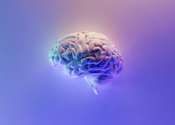Eye movements reveal rhythm of memory formation
(Medical Xpress)—Quick eye movements, called saccades, that enable us to scan a visual scene appear to act as a metronome for pushing information about that scene into memory.
Jul 31, 2013
2
0
(Medical Xpress)—Quick eye movements, called saccades, that enable us to scan a visual scene appear to act as a metronome for pushing information about that scene into memory.
Jul 31, 2013
2
0

(Medical Xpress)—When you walk into a darkened room, your first instinct is to feel around for a light switch. You slide your hand along the wall, feeling the transition from the doorframe to the painted drywall, and then ...
Dec 11, 2012
3
1

Biologists at UC San Diego have discovered that electrical oscillations in the brain, long thought to play a role in organizing cognitive functions such as memory, are critically important for the brain to store the information ...
Apr 28, 2011
3
0

Patients undergoing chemotherapy often experience cognitive effects such as memory impairment and difficulty concentrating—a condition commonly known as "chemo brain."
Mar 6, 2024
0
30

Throughout the brain's cortex, neurons are arranged in six distinctive layers, which can be readily seen with a microscope. A team of MIT neuroscientists has now found that these layers also show distinct patterns of electrical ...
Jan 18, 2024
1
147

Every day, we store memories, some of which we are able to recall later. But while we do so, do we keep on storing? Yes, because we cannot afford to stop memory formation while we are retrieving prior ones. Imagine, for instance, ...
Oct 10, 2023
0
121

The brain circuitry that is disrupted in Alzheimer's disease appears to influence memory through a type of brain wave known as theta oscillation, a team led by UT Southwestern Medical Center researchers report. The findings, ...
Oct 5, 2023
0
42

When patients undergo general anesthesia, their brain activity often slows down as they sink into unconsciousness. Higher doses of anesthetic drugs can induce an even deeper state of unconsciousness known as burst suppression, ...
Jul 17, 2023
0
71

To adapt to the small and large events that give the world its ever-changing character, we use an essential ability: cognitive flexibility. It enables us to improvise in the event of disruptions on our morning commute, to ...
Jun 28, 2023
0
208

Ketamine is useful for treating depression, but unfortunately, it can cause dissociative symptoms—such as having an out-of-body experience or feeling emotionally numb.
May 2, 2023
0
36
